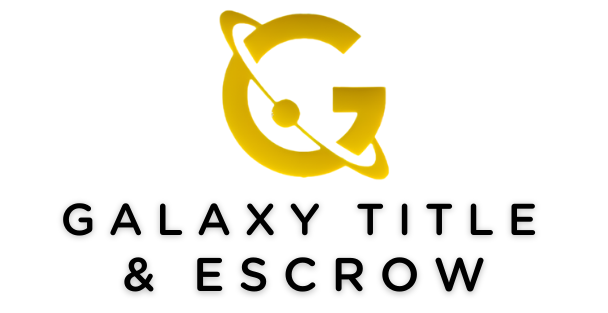In the United States, most people use a mortgage from a bank or other financial establishment to finance the purchase of a home. Homeowners have also used alternative financing measures where they make their payments directly to the sellers. That’s partially because even buyers who are creditworthy might have difficulty finding traditional mortgages for lower-priced properties, especially amounts under $150,000.
Our team at Galaxy Title & Escrow can help protect real estate financing in an escrow account. If you need advice or are not sure where to start when it comes to buying property in South Florida, give us a call!
What’s The Difference?
Many times, alternative financing arrangements don’t have the consumer protections that are available with traditional home loans and are moderately regulated by a jumble of federal and state rules. And the arrangements may have different names in different parts of the country, adding to the confusion for buyers. Also, in many states, the agreements don’t need to be recorded in a public record as conventional mortgages do. Types of alternative financing include:
The most common type of alternative financing is a personal property or “chattel” loan. Chattel loans are often used to buy manufactured homes (previously called mobile homes). These loans are similar to traditional mortgage loans but often have higher monthly payments and interest rates with shorter terms. If the borrower falls behind in payments, lenders can often repossess the home.
With chattel loans, the buyer usually buys the structure but rents the land it’s on. Landowners may raise the rent to an amount the borrower can’t afford, causing a default. Many times, the legal view of manufactured homes is that they are personal property, not real estate, making them ineligible for mortgage financing, even when the buyer owns the property it sits on.
This is another type of seller-financed arrangement. In this agreement, the seller offers credit directly to the buyer. Unlike some other property agreements, the property deed does not transfer to the buyer at the outset; instead, the seller retains full ownership until the final payment is completed. During this time, the buyer does not possess clear rights to the property or the accrued equity, which represents their level of home ownership.
This type of arrangement offers a unique structure in which ownership and property rights gradually transition to the buyer as they fulfill their payment obligations. Since the buyer doesn’t have proof of ownership:
- their payments don’t build equity in the property
- it may not be clear who is responsible for taxes and repairs
- the loans usually don’t have foreclosure protections
- buyers risk eviction and loss of investment if they fall behind in payments
Under a lease-purchase agreement, also known as “rent-to-own” or “lease with option to purchase,” the property seller is also the landlord, and the buyer resides in the property as a tenant. Typically, the buyer pays a fee upfront, or a down payment, in exchange for the option to buy the home within a specified period. If the buyer engages the option, part of their previous monthly payments may be applied toward the down payment.
In this scenario, either the seller or a financial institution can provide the buyer with credit for the remaining purchase amount, which the buyer repays gradually, and the property deed is transferred to the buyer at the loan’s outset.
However, if the buyer isn’t able or is unwilling to finalize the transaction, the arrangement might allow the seller to keep all or some of the buyer’s down payments.
In a seller-financed mortgage arrangement, the seller serves as the lender, extending credit directly to the buyer. This setup includes the immediate transfer of the property deed to the buyer, granting them full ownership rights akin to a traditional mortgage, and the buyer repays the loan over a specified period. This arrangement offers a distinct and flexible approach to property transactions.
A few states have laws that regulate seller-financed mortgages and federal laws apply only to sellers who finance more than three properties in a 12-month period. Buyers are generally left without a clear alternative if the seller hasn’t made sure that the home is livable, the contract terms are fair, and there aren’t any competing claims on the title.
What’s the Cheapest Way to Buy a House?
The cheapest ways to buy a home include:
When original owners stop paying their mortgages, foreclosed properties are repossessed by banks or lenders. Banks are highly motivated to sell these homes as fast as possible, often below market value.
A short sale is a home that sells for less than what’s still owed on the mortgage. The buyer makes an offer to the seller’s bank, not the seller. Some banks accept offers as low as 50% of the home’s appraised value.
Government-backed loans lower upfront requirements for buyers, although they may have higher mortgage payments. FHA (Federal Housing Administration) loans require low down payments and the USDA (U.S. Department of Agriculture) and VA (Veterans Affairs) may suspend the down payment completely.
First-time and low-income buyers may get help from local, state, or federal government to help with closing costs or part of the down payment.
The U.S. Department of Housing and Urban Development sponsors home-buying assistance programs.
Buying a home that needs serious cosmetic repairs can offer lower costs upfront and faster equity.
What Type of Loan has the Lowest Interest Rate?
The type of loan with the lowest interest rate is a mortgage. Mortgage loans usually charge 3% to 8%, depending on the general real estate climate and the borrower’s creditworthiness. Other factors that can affect the mortgage rate include:
- Location of the home
- Price
- Down payment
- Loan term
Are You Buying a Home in Florida?

If you’re looking to buy a home in Florida, you should be aware of alternative financing. Our team at Galaxy Title & Escrow can provide you with expert tax and legal advice concerning any real estate transactions you may consider. Whether you are a first-time home buyer or an experienced investor, we are here to protect your interests.
With Galaxy, you really are in the best, most experienced hands. Contact us today to find out how we can help you!

